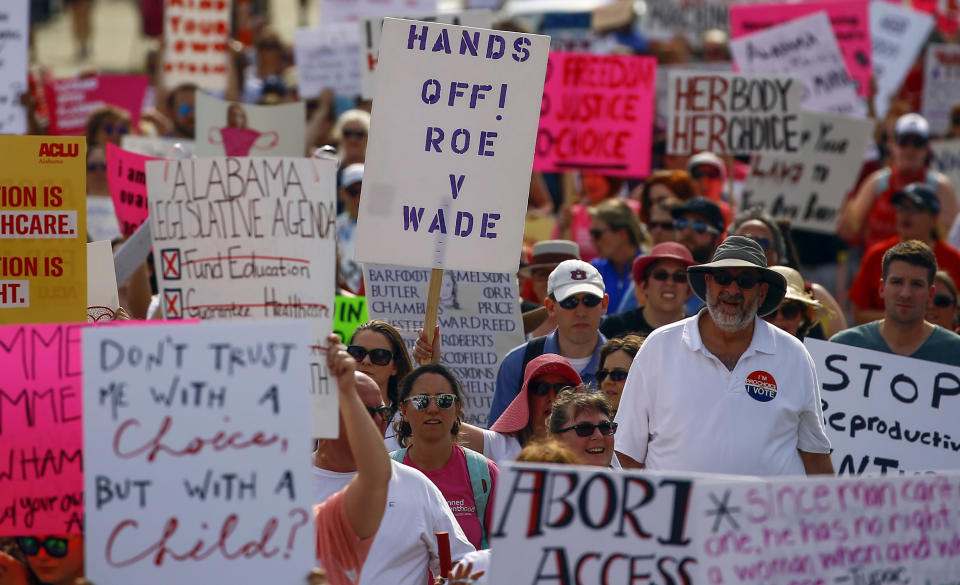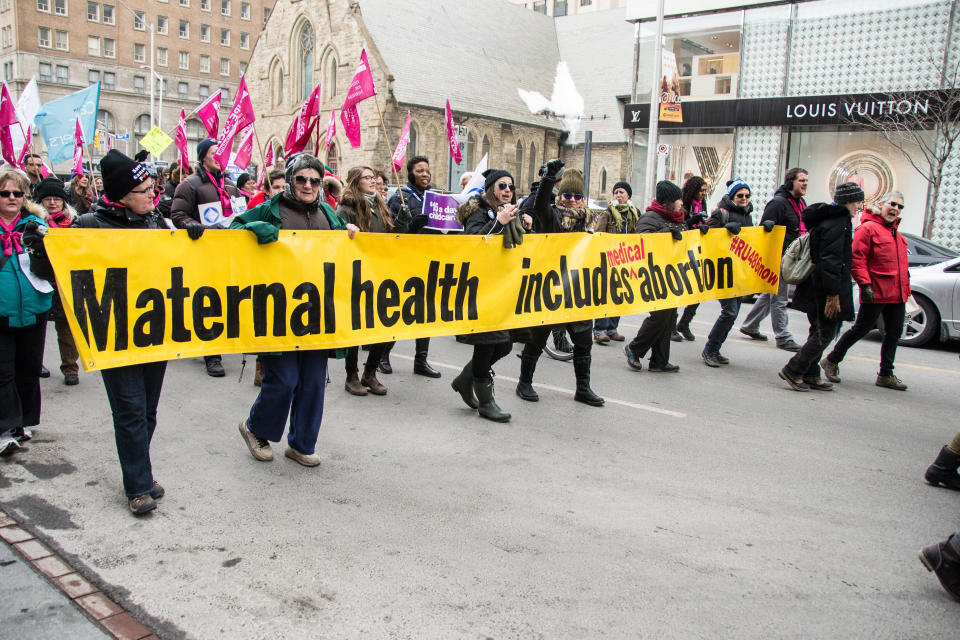Canada's policies on abortion: Do you agree?
Highly restrictive abortion legislation has been passed in several U.S. states, prompting outcry from Americans. It’s also made waves up north, with Canadians examining the country’s own policies on abortion.
Fears about restrictions when it comes to coverage, or continued lack of access to abortion services in rural communities, are issues that have come back into the spotlight as protests continue in the U.S. against the new legislation.
If you’re catching up on the issues that have been making headlines down south, here’s what you need to know.
What laws have been implemented in the U.S.?

In Alabama, Governor Kay Ivey has signed a new bill that effectively bans abortions after the 6th week of pregnancy, a point when many women may not know they are pregnant. Under the new law, abortion providers could face up to 99 years in prison, with no exemptions in the case of rape and incest.
In Georgia, a new abortion law defines a fetus as a legal person, which legal experts say could open the door to those who have an abortion being charged with murder.
Missouri’s state senate also passed a controversial bill that would outlaw most abortions at 8 weeks of pregnancy, and has no exemptions in cases of rape and incest.
Other states like Arkansas, Kentucky and Ohio have also passed new abortion laws, and more states are set to follow suit.
What are Canada’s policies surrounding abortion?

Before 1969, all abortions were illegal in Canada. By 1969 an amendment was introduced that allowed abortions only in very specific cases. A woman would need a committee of doctors to sign off.
Almost 20 years later in 1988, the Supreme Court of Canada struck down legal restrictions surrounding abortion, deeming the restrictions unconstitutional under the Canadian Charter of Rights and Freedoms. This meant abortion became legal in all provinces.
According to data from the Canadian Institute for Health Information, most abortions in the country happen at 12 weeks and under. Abortions past that date usually have to do with the health of the fetus or the mother. Most abortions are done at a very early stage when there are no legal delays.
The number of abortions performed in Canada has also been steadily decreasing since 1998, due to increased access and reduced stigma surrounding contraceptive use.
If abortion is legal here, why is this a discussion in our country?
Whether all women in Canada have proper access to abortion is an ongoing debate. In rural communities, many have to travel more than 100km to find a clinic or hospital that can provide them with an abortion.
In Prince Edward Island, up until 2017 there was no place to access abortion services on the Island. In New Brunswick, two doctors needed to sign off on the procedure up until 2014.
The reciprocal billing agreement between provinces allows for patients to have health care coverage if they are outside of their home province. Abortion is not one of the procedures listed on the agreement, so you might have to pay out of pocked for an abortion in another province.
Access to the abortion pill in Canada has been another issue since the pill first became available in 2017. The medication is appealing as it allows an abortion to occur in the privacy of one’s own home. But only 6 out of 10 provinces cover the cost of the drug, which ends up being between $400 and $600.

